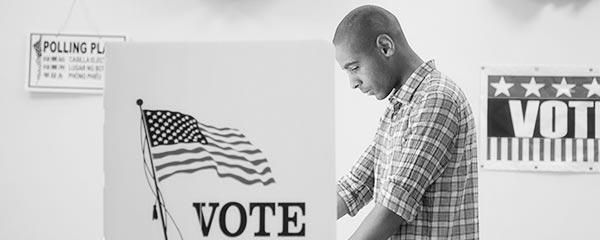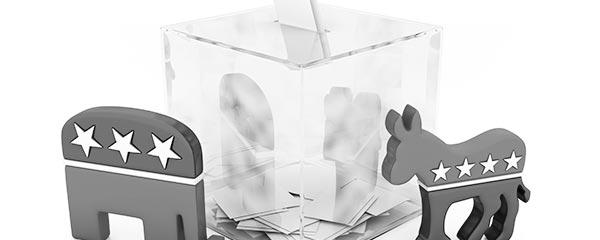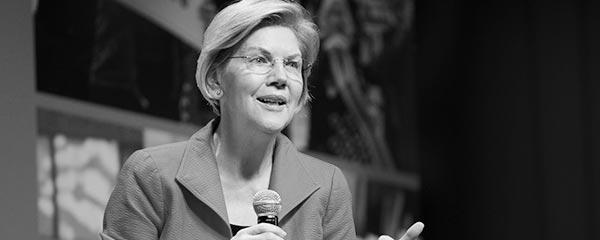Sen. Bernie Sanders' focus on reducing what he calls has been a significant part of his campaign for the Democratic presidential nomination.
To address that issue, Sanders has announced a number of proposals -- chiefly, increased on higher-income households and a new tax on the . Most recently, Sanders announced a plan for whose CEOs make a lot of money relative to the average wage of their employees.
This plan builds off the foundation provided by the 2010 Dodd-Frank Wall Street Reform and Consumer Protection Act. That law of their CEO to the median compensation of all of their employees (minus the CEO). Dodd-Frank did not mandate any action to be taken as a result of the disclosure of the ratio, only that the information be made public.
Sanders, however, has proposed using the data as the basis for imposing a progressive corporate tax on companies with annual revenue of more than $100 million whose CEO to median worker compensation ratios are 50:1 or higher. The proposed tax increases would range from 0.5% (for companies whose ratios are between 50 and 100) to 5% (for companies whose ratios are above 500).
Many public companies have ratios above 50 and would thus be subject to the new tax increase. According to a of published data, the average corporate CEO pay ratio in 2018 was 144:1, with a median of 69:1. The ratios for some specific companies are much higher than these averages -- including , like Gap and McDonald's.
Sanders' Plan Is Not New
The concept behind Sanders' proposed plan is not new. In 2016, the city of Portland, Oregon, that puts a surtax on CEO pay (for companies operating in that city) that exceeds 100 times the wage of the median employee. Portland expects in 2019 to collect up to $3.5 million in additional tax revenue as a result.
Residents in Switzerland in 2013 had the that would have capped the pay of CEOs of Swiss companies at no more than 12 times the lowest-paid worker. This 12:1 ratio initiative -- much more draconian than what Portland initiated or what Sanders proposed -- was defeated in the 2013 vote.
And Sanders, of course, is not alone in his focus on inequality. It has become a campaign motif among many of his fellow presidential aspirants, including in particular front-runner Elizabeth Warren. As the , "Economic inequality is pulling this country apart. We need stronger labor laws and a tax code that rewards a middle class that's been cut out of decades of economic growth -- not just the wealthy, who have gotten too many tax breaks for too long." And, before the presidential campaign is over, we may see still more proposals of ways to increase taxes on the rich and on corporations -- both as an outgrowth of philosophic objections to extreme inequality and to help fund other proposed government programs.
Sanders' Plan Fits Well With Existing Public Opinion
We know in general that Americans tend to favor higher taxes on the rich. My review of the available data earlier this year concluded that "The idea of taxing the rich resonates with Americans' underlying attitudes. For over a quarter of a century, Â鶹´«Ã½AV research has shown that a majority of U.S. adults believe upper-income Americans pay too little in taxes. A majority of Americans for 35 years have also said that money and wealth in the U.S. should be more evenly distributed."
Additionally, and germane to highly paid CEOs, Â鶹´«Ã½AV data show that 62% of Americans say "upper-income people" pay too little in taxes. Further, 69% of Americans say that corporations in general are paying too little in taxes.
Other Â鶹´«Ã½AV research shows that Americans have little affection for big companies and their executives:
-
Business executives rank 15th on a list of 20 professions tested for their honesty and ethics, with 17% of Americans saying that business executives have "high" or "very high" honesty and ethical standards.
-
Polling by other organizations shows that over and that (74%) say that CEOs are overpaid.
-
Big companies also score low in the public's esteem, with 23% of Americans reporting "a great deal" or "quite a lot" of confidence in big business in Â鶹´«Ã½AV's latest update -- putting it 13th out of 15 institutions tested. (By contrast, 68% have a great deal or quite a lot of confidence in small business, second only to confidence in the military.)
In short, Americans -- in general -- have negative views of business executives and of big companies, believe that CEOs are paid too much, and believe that high-income individuals and corporations pay too little in taxes.
All of this suggests a generally fertile public opinion environment for acceptance of the type of plan Sanders is proposing: to stick higher taxes on companies whose CEOs make a lot of money relative to the average pay of their employees.
There are some limits to these views, however. Americans have mixed feelings when it comes to the idea of direct government intervention to lower executive pay. Last year, we found less than a majority -- 47% -- of Americans favored the idea of "the federal government taking steps to limit the pay of executives at major companies." (That's down from a clear majority who supported this idea when we first asked the question in 2009, in the aftermath of the Great Recession.)
And by other organizations show that when presented with specific proposals to increase the tax rate dramatically -- to 70% -- on "those with very high incomes" (CNN) or "an individual's income that is over $10 million" (Quinnipiac), less than half of Americans are in favor. In other words, Americans favor higher taxes on the rich in concept, but tend to balk when a figure like a 70% tax rate is mentioned.
But, these caveats notwithstanding, what Sanders has proposed is not an attempt by the government to intervene in corporate decision-making and mandate a limit on what CEOs can be paid. And it's not an attempt to raise taxes on highly paid CEOs per se. Rather, it's a tax on those companies whose CEOs make much more than their average employee does. I'm not aware of polling that addresses Sanders' proposal directly, but based on public opinion data that relate more specifically to corporate taxes (and to the negative image of big companies), I think it's likely there is majority support for Sanders' proposal.




